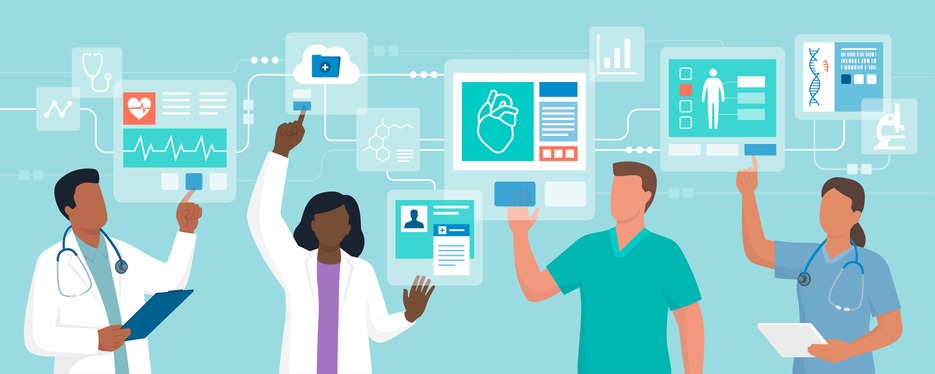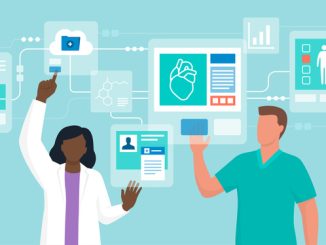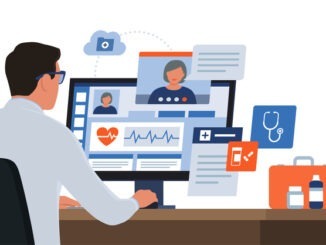
Recent advancements in healthcare tech are reshaping patient care, but privacy and cost hurdles remain
CREDIT: This is an edited version of an article that originally appeared on The Healthcare Daily
In recent years, technological advancements have revolutionised nearly every facet of modern life, and this holds particularly true for the field of healthcare. Technology has become an integral part of healthcare practices, encompassing various aspects ranging from electronic health records (EHRs) to telemedicine and wearable devices for monitoring vital signs. The objective behind these innovations is to enhance patient outcomes by rendering healthcare more streamlined, effective, and accessible.
Relevance of Technology for Practice Managers
Enhanced Quality of Patient Care
Among the notable advantages of technology in healthcare is the noticeable improvement in the quality of patient care. By having access to digital health records, medical professionals, including GPs and other care providers, can swiftly retrieve essential patient details such as medical histories, diagnostic test results, and medication records. This wealth of information facilitates well-informed decisions regarding treatment and care, ultimately contributing to better health outcomes.
Increased Accessibility to Care
A pivotal benefit of technology in healthcare is the expanded access to care it enables. Through telemedicine, patients can remotely connect with healthcare providers, eliminating the need for travel and significantly reducing appointment wait times. Telemedicine has been particularly valuable in underserved and rural communities, ensuring improved access to care for patients who might otherwise face challenges reaching a medical facility.
Elevated Patient Engagement
Technology has the potential to amplify patient engagement by simplifying access to health information and fostering communication between patients and healthcare providers. For instance, numerous health systems now offer patient portals, empowering patients to review their health records, request prescription refills, and communicate with their care providers. This level of engagement encourages patients to take an active role in their health management, consequently leading to improved outcomes.
Optimised Delivery of Care
The incorporation of technology can significantly enhance the efficiency of healthcare delivery by automating routine tasks and reducing the time dedicated to administrative work by healthcare providers. Electronic health records (EHRs), for instance, streamline the process of documenting patient information, freeing up more time for healthcare professionals to focus on patient interaction.
Obstacles to Address
Privacy and Security Challenges:
One of the major hurdles in adopting technology in healthcare lies in addressing privacy and security concerns. The sensitivity of health information mandates robust protection measures to uphold patients’ rights and prevent misuse. Implementing stringent security protocols and providing comprehensive training to healthcare staff on the proper use and management of health information is crucial.
Financial Implications of Technology
Implementation The cost associated with implementing technology in healthcare poses a significant challenge. Practices must allocate substantial resources to fully harness the benefits of digital health solutions. Smaller practices and those serving low-income populations might face challenges in this regard. Additionally, adapting to new technology often necessitates training for GPs to ensure effective utilisation.
Overcoming Resistance to Change
Resistance to adopting new technologies can be encountered from both healthcare providers and patients. Some providers might exhibit reluctance toward embracing novel tools, while certain patients might harbour concerns about the privacy and security of their health data. Tackling these challenges requires comprehensive education about the advantages of technology in healthcare and providing adequate support during the transition to new processes and tools.
Promising Technological Frontiers for Practice Managers
Remote Patient Monitoring (RPM) RPM involves leveraging wearable devices and other technology to monitor patients’ health data in real time, enabling healthcare providers to track patients’ well-being and make necessary adjustments to treatment plans remotely.
This approach reduces the need for in-person visits and contributes to improved outcomes.
Predictive Analytics
Predictive analytics employs machine learning algorithms to analyse extensive datasets, including electronic health records, to identify patterns and predict future health outcomes. This tool empowers healthcare providers to make well-informed decisions about patient care, resulting in enhanced outcomes.
Personalised Medicine
Personalised medicine entails tailoring treatment plans to account for a patient’s unique genetic, lifestyle, and environmental factors. Technology, including genetic sequencing, plays a pivotal role in advancing personalized medicine, ultimately leading to improved patient outcomes.
Virtual Care
Virtual care, encompassing telemedicine, facilitates remote connections between patients and healthcare providers, enhancing access to care while reducing the necessity for in-person visits. This technology proves particularly beneficial for patients residing in remote areas or those with mobility constraints.
Artificial Intelligence (AI)
The integration of artificial intelligence (AI) in healthcare aids in disease diagnosis, medical image analysis, and automation of routine tasks. This technology has the potential to significantly enhance healthcare outcomes, though its application must adhere to responsible and ethical practices.



Be the first to comment